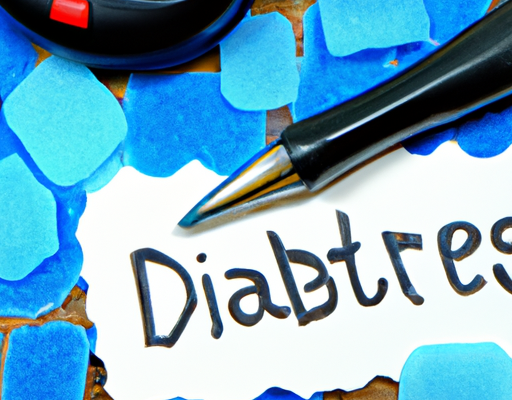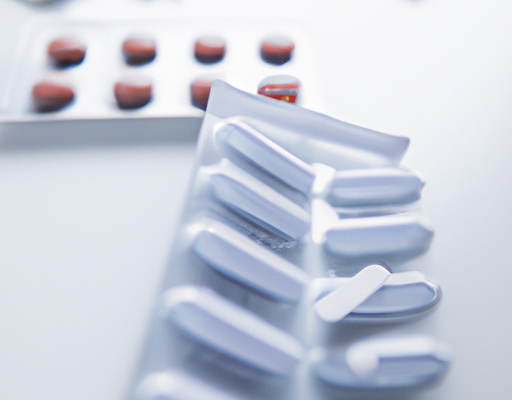What is niacin?
Niacin, also known as vitamin B3, is an essential nutrient that helps the body break down food, maintain healthy skin and nerves, and produce energy. It is also important for breaking down fats and cholesterol, and is sometimes used to lower cholesterol and triglyceride levels. Since it is a water-soluble vitamin, your body cannot store niacin and it needs to be taken regularly to meet your daily requirements. Niacin can be found in many foods, including meat, fish, whole-grain products, and legumes. It is also available in supplement form, often combined with other B vitamins or other nutrients. Some people take high doses of niacin for its potential benefits, such as reducing inflammation, improving blood sugar and cholesterol levels, and helping prevent heart disease. When taken in large doses, it can cause side effects like flushing and nausea. Taking niacin at night is generally safe, but it’s important to talk to your doctor about the proper dose for your needs and any potential side effects.
What are the health benefits of taking niacin?
Niacin, also known as vitamin B3, is a vital nutrient for overall health and well-being. It helps the body produce energy and protective antioxidants, supports the nervous system, and aids in the functioning of numerous metabolic processes. Taking niacin can offer a number of health benefits, such as:
- It helps to reduce cholesterol levels and improve heart health.
- It can help lower blood pressure.
- It increases the body’s production of certain hormones, such as insulin.
- It helps to reduce inflammation.
- It may help to reduce the signs and symptoms of arthritis.
- It has been linked to improved cognitive function.
- It is thought to have anti-aging benefits.
Niacin can be taken as a supplement or obtained through natural sources such as meat, fish, poultry, and legumes. It is important to consult with your doctor to determine the optimal dosage for your individual needs, as taking too much niacin can have serious side effects.
What are the side effects of taking niacin?
Taking niacin, also known as vitamin B3, has become popular for a variety of reasons, from lowering cholesterol to treating migraine headaches. While it can have some beneficial effects, it can also have some side effects. Surveyed side effects include indigestion, nausea, vomiting, and other gastrointestinal symptoms. Overdosing on niacin has been known to cause hypotension or low blood pressure, which can lead to dizziness, lightheadedness, or fainting. Niacin can also cause flushing, an uncomfortable and often embarrassing sensation, as well as skin irritation. In some cases, taking niacin has been linked to liver toxicity and rarely, increased risk of gout. If you experience any discomfort when taking niacin, it’s best to consult with a doctor.
How much niacin should be taken?
When it comes to taking niacin, it is important to consider the dosage you are taking. Generally, it is recommended to take no more than 500 mg of niacin per day, and it is best to split this dosage into two separate doses. When taking niacin at night, the dosage should not exceed 250 mg. It is also important to take niacin with food, as taking it on an empty stomach can potentially cause nausea and other digestive issues. If you are taking a prescription form of niacin, be sure to follow the instructions provided by your doctor regarding dosage. It is also important to note that taking too much niacin can cause serious side effects, including liver and kidney damage. Speak with your doctor about the best dosage for your specific needs.
What is the best time of day to take niacin?
When it comes to taking medications, timing can matter. Taking niacin is no exception – the best time of day to take niacin depends on the type and the purpose of taking it. For those who take niacin for the purpose of improving their cholesterol levels, it is generally most effective when taken at bedtime. This is because niacin has been found to reduce cholesterol levels by up to 30%, but these effects appear to be most noticeable after taking it right before bed. On the other hand, those who take niacin to treat other conditions may be advised to take it at different times of the day, depending on their needs. Ultimately, the best time of day to take niacin should be discussed with a healthcare provider, as they can provide individualized advice tailored to your needs.
Are there any precautions to taking niacin at night?
When considering taking niacin at night, it is important to be aware of any potential side effects or precautions that should be taken. Niacin may cause an uncomfortable flushing sensation or warmth, and taking it at night may make it more noticeable as the person is trying to sleep. Additionally, niacin can cause stomach upset, nausea, and dizziness, so it may be best to eat something before taking niacin or to take the supplement with food. It is also important to speak with a doctor before taking niacin and to follow the doctor’s advice, as they will be aware of any potential interactions with other medications and supplements that may be being taken. Finally, if taking a timed release version of niacin, it is important to not take it too close to bedtime. Timed release versions of niacin should be taken at least one hour before bedtime in order to allow the body to finish metabolizing the supplement before sleep.
What are some potential interactions between niacin and other medications?
There are potential interactions between niacin and other medications, and these should be taken into account when deciding whether or not to take niacin at night. For example, niacin may interact with diabetes medications and some blood pressure medicines, and taking too much may increase the risk of certain side effects. Additionally, niacin is known to interact with certain other medications, such as anticoagulants like warfarin, antidepressants, and anti-seizure medications. As such, it is important to speak with your healthcare provider before taking niacin at night, especially if you are taking any other medications.
Conclusion
In conclusion, taking niacin at night can help boost your energy level and improve your overall health. It can also help reduce your risk of heart disease, stroke, and high cholesterol. Taking niacin at night may also improve your long-term cognitive functioning. However, it is important to speak to your doctor before taking any type of supplement. Here’s a quick summary of the benefits of taking niacin at night:
- Boosts energy level
- Reduces risk of heart disease, stroke and high cholesterol
- Improves long-term cognitive functioning
It is essential to talk to your doctor to determine the right dosage before taking niacin at night. Niacin is a safe supplement when used as directed, but it can cause side effects if taken in high doses. Therefore, it is important to follow the directions on the product label and consult your doctor.





No Comments